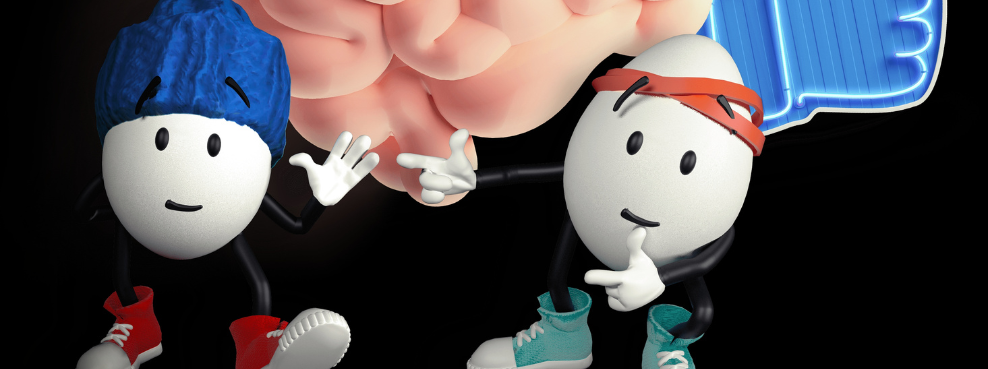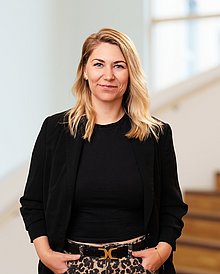"Meine Kopfsache": New portal helps children who regularly suffer from headaches
On World Headache Day on 7 June 2022, the self-help portal of the German Paediatric Pain Centre at the Vestische Kinder- und Jugendklinik of Witten/Herdecke University provides practical everyday strategies against regular headaches.

Almost a third of all children and adolescents in Germany regularly suffer from headaches - and the trend is rising. In most cases, there is no other underlying illness and the children ask themselves: What can I do? Who can help me? And parents are also at a loss. How can they support their headache-stricken children? A new online self-help portal provides answers to these questions: "Meine Kopfsache". The website helps children and young people suffering from pain and their families to get the pain under control.
Meine Kopfsache" is a joint project of the German Paediatric Pain Centre at the Vestische Kinder- und Jugendklinik Datteln - Witten/Herdecke University, the patient organisation UVSD SchmerzLOS e. V. and the Techniker Krankenkasse (TK). In addition to easy-to-understand explanations of the development of headaches, the portal is intended to provide practical everyday strategies for actively dealing with headaches that can be applied directly in acute situations. The aim of the newly learnt strategies is to reduce the number of days with headaches, reduce impairment in everyday life and thus prevent chronicity.
Responsible use of medication
Informed and responsible use of medication is particularly important to the creators of "Meine Kopfsache": "Unfortunately, we are seeing too much medication being taken by children and adolescents who suffer from tension headaches," reports Dr Julia Wager, project manager at the German Paediatric Pain Centre. The website is explicitly intended to present non-medication-based strategies for dealing with tension headaches. "Meine Kopfsache" explains the consequences of incorrect and excessive medication consumption, says Wager.
For Dr Jens Baas, CEO of TK, the new online portal is a low-threshold addition to medical treatment. "In order to combat headaches in the long term, it is important to understand the illness. Good self-management can help you stay symptom-free for longer and prevent headaches from progressing into adulthood. Digital services can provide excellent support for young headache patients," says Baas. TK has supported "Meine Kopfsache" as part of its self-help project funding.
Information is designed for children aged 10 and over
All the information on "Meine Kopfsache" has been scientifically verified. It is presented in an understandable and entertaining way for children aged 10 and over. "Everyone can do something themselves so that headaches occur less frequently or are not so severe," explains Wager. To make reading and learning fun, "Meine Kopfsache" includes three animated videos that explain the development and treatment of headaches. The newly acquired pain-related knowledge can be tested and consolidated in a fun way with small knowledge quizzes.
In view of the high number of people affected, the "Meine Kopfsache" online portal aims to reach as many children, young people and parents as possible. "This young age group is familiar with multimedia formats and often even considers information via these media to be more credible than information from their doctor," adds Heike Norda, 1st Chairwoman of UVSD SchmerzLOS e.V.
The day of action against pain is now in its 11th round. Every year, the German Pain Society, with the support of many other pain organisations, draws attention to the gaps in care for several million people who suffer from chronic pain. Campaigns, information days and lectures are held in numerous practices, clinics, pharmacies and care facilities throughout Germany.
More information at: www.meine-kopfsache.com
Contact person

Svenja Malessa
Press Officer
Administration | Communication & Marketing
Alfred-Herrhausen-Straße 48
58455 Witten
Room number: 2.F05